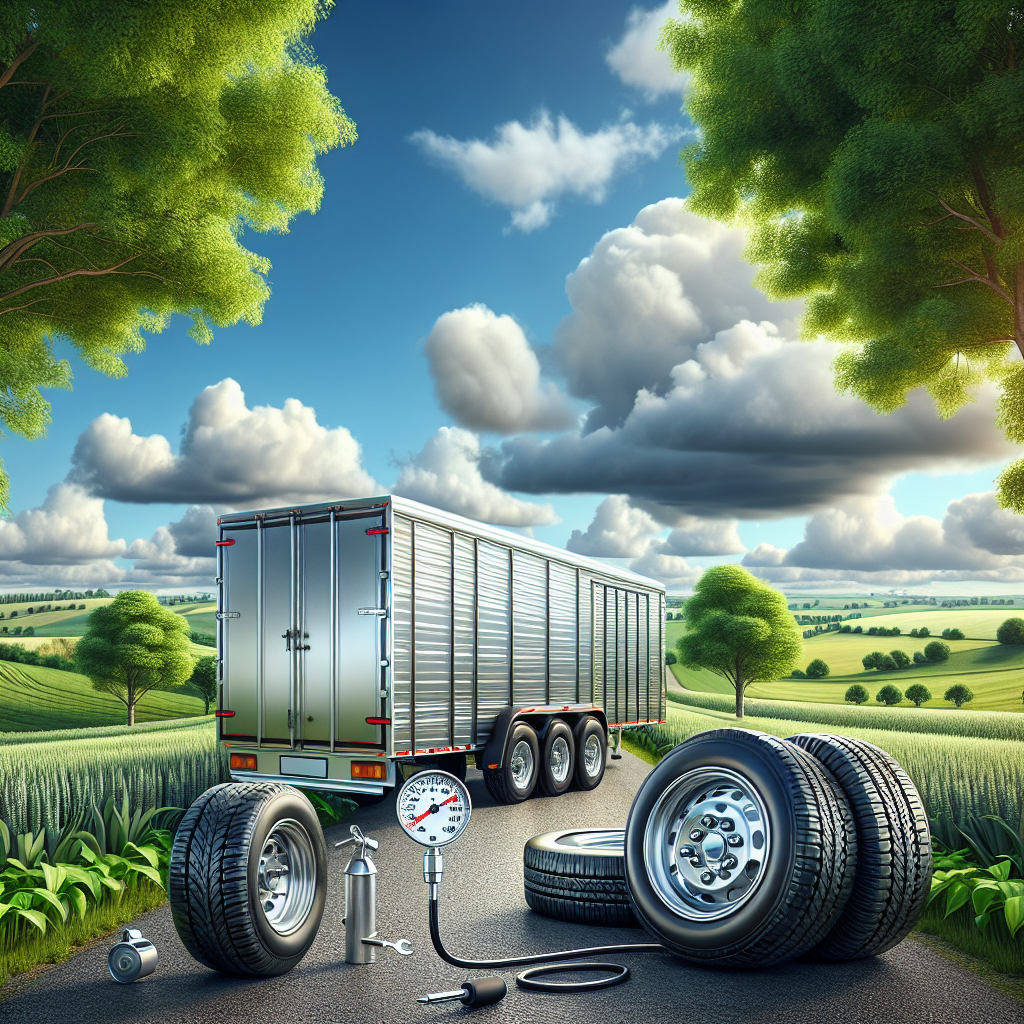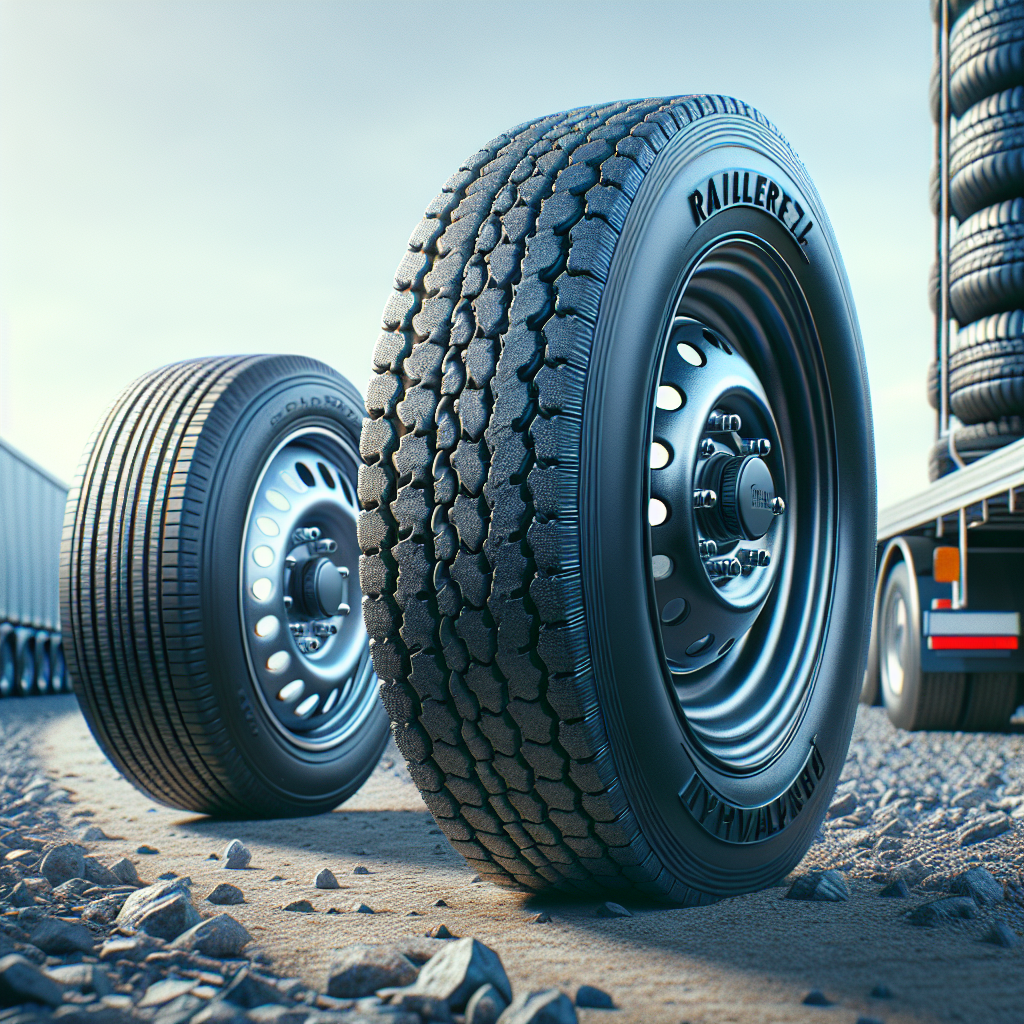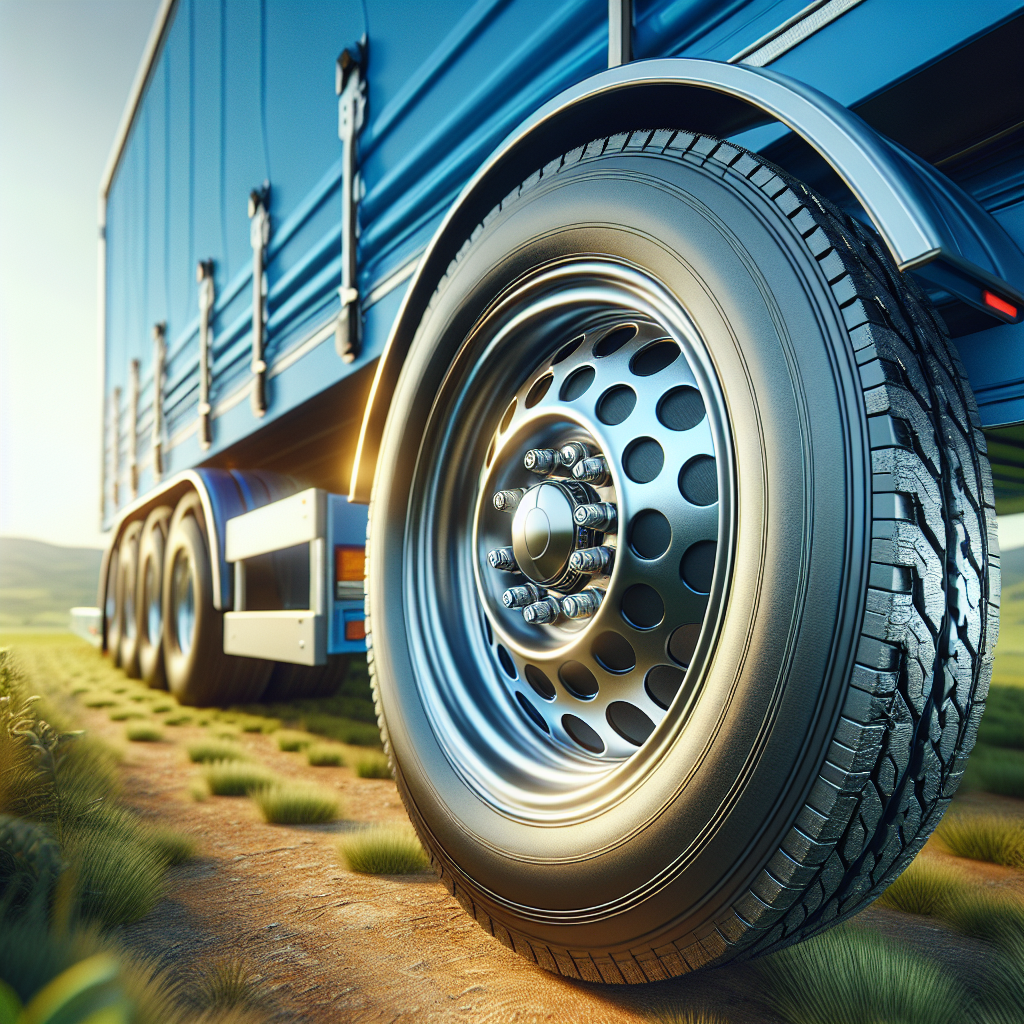Maintaining proper trailer tire pressure is crucial for safe and efficient towing. Under-inflated tires can lead to a range of issues, including increased tire wear, reduced fuel efficiency, and even catastrophic blowouts. On the other hand, over-inflated tires can result in a harsh ride and decreased traction, particularly in adverse weather conditions.
One of the primary reasons for monitoring your trailer's tire pressure is to ensure optimal performance. When tires are inflated to the manufacturer's recommended pressure, they provide better stability and handling, which is especially important when navigating turns or during sudden stops. Additionally, maintaining the correct tire pressure helps in distributing the trailer's weight evenly, preventing undue stress on the axle and suspension system.
With a trailer tire pressure and temperature monitoring system, you can continuously track your tire conditions in real-time. This advanced technology alerts you to any significant changes in pressure or temperature before they become serious problems. Regular checks help you avoid unexpected breakdowns and ensure that your trailer is always ready for the road.
Tow with peace of mind, knowing that trailerwatchdog is standing guard to keep your trailer safe and secure.
How Temperature Affects Trailer Tire Performance

The performance of trailer tires is significantly influenced by temperature, making it essential for trailer owners to understand this relationship. As the temperature rises, so does the internal pressure within the tire. This increase can lead to a variety of challenges that can jeopardize both safety and efficiency on the road.
When tires heat up, they can expand, potentially causing the pressure to exceed the safe operating limits. This can result in increased wear and tear, making the tires more prone to blowouts. Additionally, overheating tires can lead to a loss of traction, particularly on wet or slick surfaces, which is a dangerous situation for any trailer.
Moreover, temperature fluctuations can also affect the tire rubber’s integrity. Higher temperatures can cause the rubber to degrade more quickly, leading to premature tire failures. Conversely, excessively cold temperatures can cause the rubber to become stiff and less flexible, reducing grip and increasing stopping distances.
To mitigate these risks, it’s crucial to have a reliable trailer tire pressure and temperature monitoring system. This system monitors both pressure and temperature in real-time, allowing you to make informed decisions about your tire maintenance. By keeping a close watch on these metrics, you can maintain optimal tire performance and enhance safety.
Key Features of Effective Monitoring Systems
When it comes to maintaining the safety and performance of your trailer, an effective monitoring system is indispensable. Here are some key features that make a trailer tire pressure and temperature monitoring system truly effective:
- Real-Time Monitoring: The best systems provide real-time data on both tire pressure and temperature, allowing for immediate action if any anomalies are detected.
- Alerts and Notifications: Effective systems come equipped with alerts that notify you of any critical changes. This could include pressure drops or temperature spikes, ensuring you can address issues before they escalate.
- Durability and Weather Resistance: Given that trailers are often exposed to harsh conditions, a robust monitoring system should be designed to withstand extreme weather, dirt, and vibrations.
- Easy Installation: Look for systems that can be easily installed without extensive modifications to your trailer. User-friendly installation ensures that you can set up your monitoring system quickly.
- Data Logging: Advanced systems often include data logging capabilities, allowing you to track historical data on tire pressure and temperature trends. This information is invaluable for maintenance planning.
By choosing a monitoring system that incorporates these features, you can ensure that your trailer is always performing at its best, significantly reducing the risk of tire-related issues during your journeys.
Regular Maintenance Tips for Monitoring Systems

To ensure that your trailer tire pressure and temperature monitoring system operates optimally, regular maintenance is essential. Here are some key maintenance tips to keep your system functioning effectively:
- Routine Checks: Regularly inspect the sensors and wiring for any signs of wear or damage. Make it a habit to check these components during pre-trip inspections.
- Battery Maintenance: Many monitoring systems rely on battery power. Ensure that batteries are charged and replaced as needed to avoid unexpected failures during travel.
- Software Updates: If your monitoring system includes software, check for updates periodically. Manufacturers often release updates that improve functionality and address any bugs.
- Calibration: Periodically calibrate your monitoring system to ensure accuracy. This may involve checking the readings against a reliable pressure gauge to confirm that your sensors are providing correct information.
- Cleaning Sensors: Dirt and debris can affect the performance of your sensors. Clean them regularly to ensure they are free from obstructions and functioning correctly.
By implementing these simple maintenance practices, you can enhance the longevity and reliability of your trailer monitoring system, ensuring peace of mind on the road.
Signs of Tire Issues to Watch For

Being attentive to your trailer's tires is crucial for safe travels. Recognizing the signs of tire issues early can prevent potential accidents and costly repairs. Here are some key indicators to keep an eye on:
- Uneven Wear: Inspect your tires regularly for uneven wear patterns. This can indicate misalignment, improper inflation, or suspension problems. Addressing these issues early helps prolong tire life.
- Low Pressure: Consistently low tire pressure can lead to blowouts and decreased handling. Utilize your trailer tire pressure and temperature monitoring system to stay informed about tire pressure levels.
- Bubbles and Blisters: Check for any bubbles or blisters on the tire's surface. These deformities can be a sign of internal damage and may lead to tire failure.
- Cracking: Look for cracks in the sidewalls and tread. This deterioration can result from exposure to UV rays or aging tires, indicating a need for replacement.
- Excessive Vibrations: If you notice excessive vibrations while towing, it could signify an unbalanced tire or other mechanical issues. This can impact handling and should be checked immediately.
By being vigilant and aware of these signs, you can maintain your trailer’s safety and performance on the road.
Maximizing Safety with Smart Trailer Technology

In an age where technology plays a pivotal role in enhancing safety and efficiency, integrating smart trailer technology is essential for maximizing safety on the road. A trailer tire pressure and temperature monitoring system can significantly reduce the likelihood of tire-related incidents, ensuring that your trailer remains in optimal condition.
One of the key benefits of smart trailer technology is real-time monitoring. This feature allows you to receive instant alerts about any deviations in tire pressure or temperature, allowing for timely interventions. By addressing potential issues promptly, you can avoid catastrophic failures that could lead to accidents.
Moreover, smart trailers often come equipped with advanced analytics capabilities. These systems can provide insights into your trailer's performance, identifying patterns that may indicate wear and tear or the need for maintenance. This proactive approach not only enhances safety but also extends the lifespan of your trailer.
Furthermore, some smart trailer systems integrate with your fleet management software, providing data that can inform better routing and maintenance schedules. This holistic view of your trailer's health ensures you are always one step ahead.
Tow with peace of mind, knowing that trailerwatchdog is standing guard, ready to help you maintain the safety and efficiency of your trailer on every journey.








